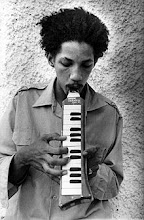Jamaica #13
(Dobby Dobson – Your New Love)
LISTEN
As 1968 came to an end so the Rocksteady evolved into the early Reggae retaining the essential flavours, (walking bassline and one drop percussion), but from my observations between 1969 and 1971 two, (almost), seperate identities emerged due, (as far as I am aware), to commercial pressure.
First there was the local sound system/dancehall market, (the lifeblood), to satisfy but also there was the export market which at the time meant England. Certain Mod/ernist’s, (or whatever you want to classify them as), took to Jamaican music straight away as early as 1962/3 and for some, (Steve Barrow for example), it turned into a lifetime’s commitment. These same hipsters seemed to embrace and recognise not only the musical quality but also the authenticity that for me is a critical aspect of Jamaican musicology. In many ways ‘Reggae’ has always been a commentary on the life and times of the sufferer and for some, (me included), that is magnetic. When I say sufferer I don’t just mean financial but also the emotional and just as importantly the social..
In England the Reggae captured a younger generation who had watched and listened as Soul, (and ‘Mod’), went overground which resulted in a look towards Jamaica for fresh inspiration. Contrary to popular belief, (and I have it on the authority of young Cats who were there), racism was not as much of an issue as has been portrayed. The universal language crosses all boundaries and the music of Jamaica spoke to both brown, black, pink and white as young kids connected through it.
I’m not sure about other parts of London but I do know that Reggae was BIG on the streets South of the River Thames in places such as Camberwell, Peckham, Brixton, New Cross, Deptford and Lewisham where Jamaicans settled. (Not forgetting Notting Hill, Shepherds Bush, Willesden and Harlesden of course). Was Jamaican music as prevalent in East and North London? I have no idea but for sure it reached out to many areas and not only in the Capital. Again I have no personal connection with Cities outside of London so I can’t comment but one look at the charts of the time shows that Jamaican music certainly had the potential to explode…
Feels a bit like I’m losing the focus so I’ll step out of the writing and on with the music otherwise i’m in danger of getting sidetracked by social history which as important as it is doesn’t really affect the quality of the music.
First up is an absolute classic from a singer who has already graced themusicologist with the original cut of ‘Loving Pauper’..Dobby Dobson. Can’t lay my hands on the 45 to credit the producer right now but I know it’s on Punch and the year of release was 1969
